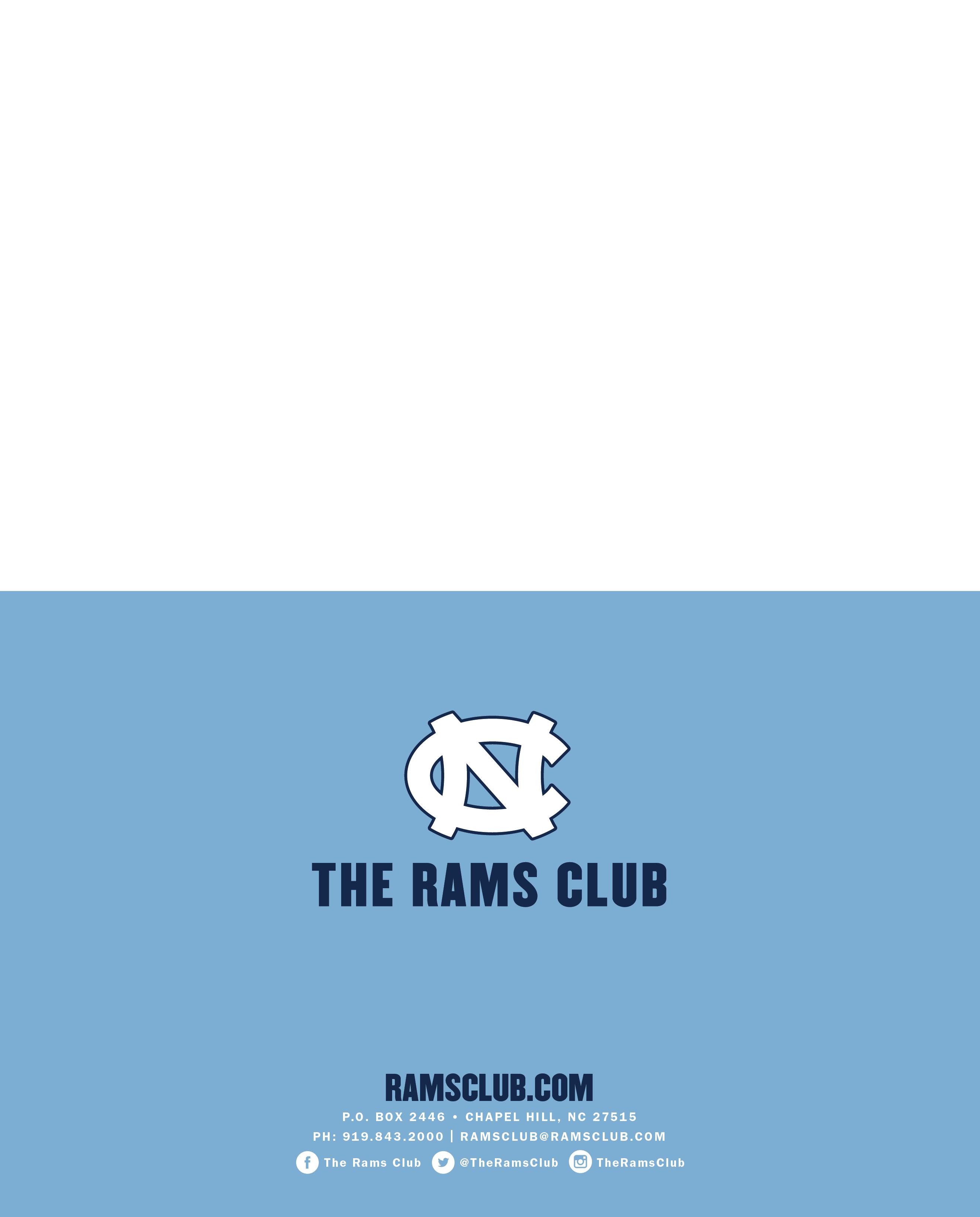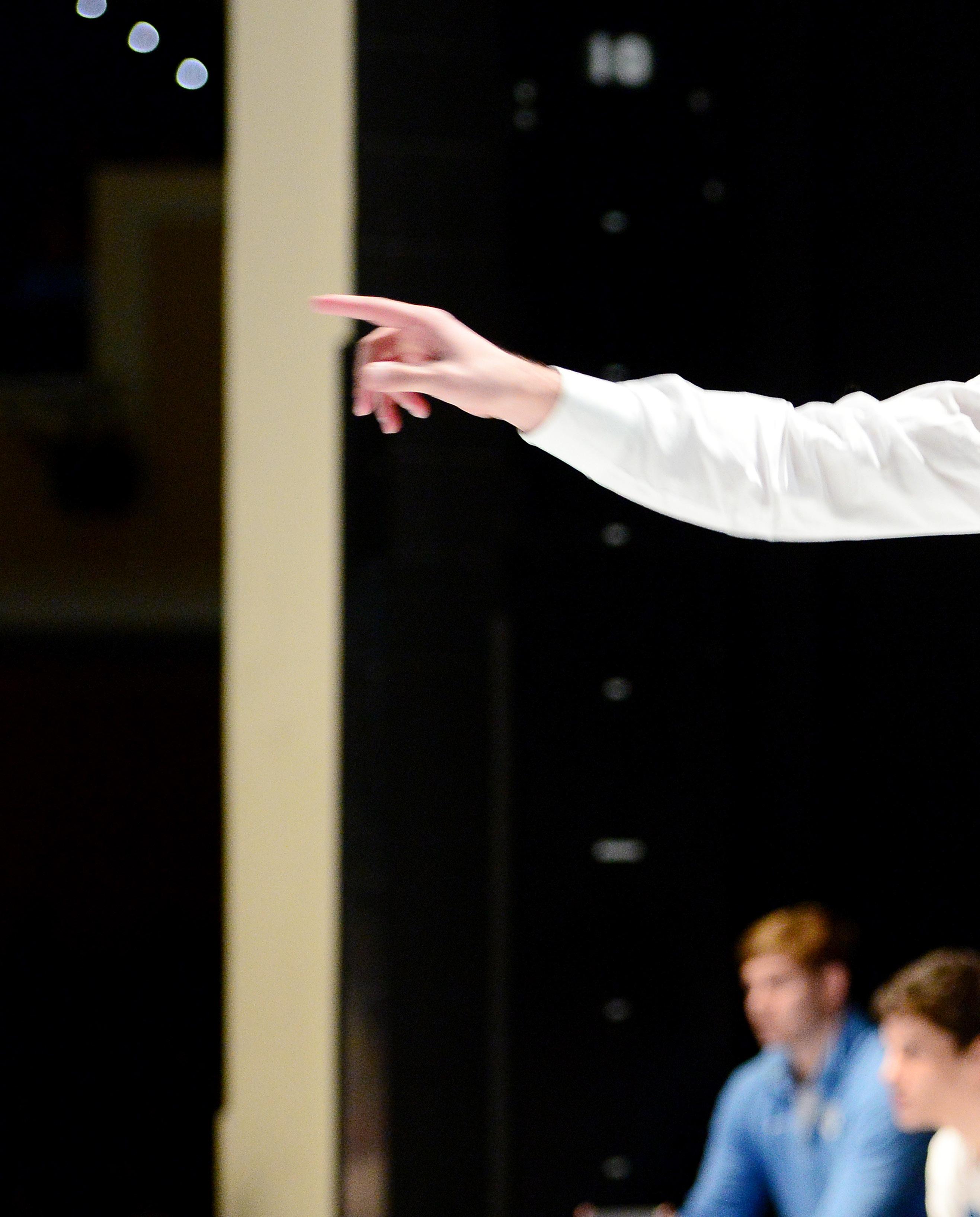
11 minute read
Learning from the Best
PHOTOS BY JEFFREY CAMARATI
AS ONE OF THE YOUNGEST HEAD COACHES IN THE ATHLETIC DEPARTMENT, COLEMAN SCOTT IS LEARNING FROM CAROLINA’S GREATS
Advertisement
There’s something beautiful about the way wrestling serves as a microcosm for the real world.
Grit. Resilience. Strong morals. Strong will.
The real world is tough and it takes staying true to who you are to come out on the other side victorious. Or at least that’s what UNC’s wrestling head coach Coleman Scott says.
It’s part of a common thread among some of Carolina’s most storied coaches. Any of the six Hall of Fame coaches with offices in Chapel Hill will immediately start talking about developing their athletes into good human beings, emphasizing being moral people. The athleticism comes naturally. The values are instilled.
While Scott is certainly embracing that emphasis by being in close proximity to the Hall of Famers, it’s something that he came to Carolina with.
“God, family, wrestling. In that order,” Scott says. He was hired as head coach of the wrestling team at 29 years old. Now, at 32 years old, his program is beginning to show the benefits of his priorities.
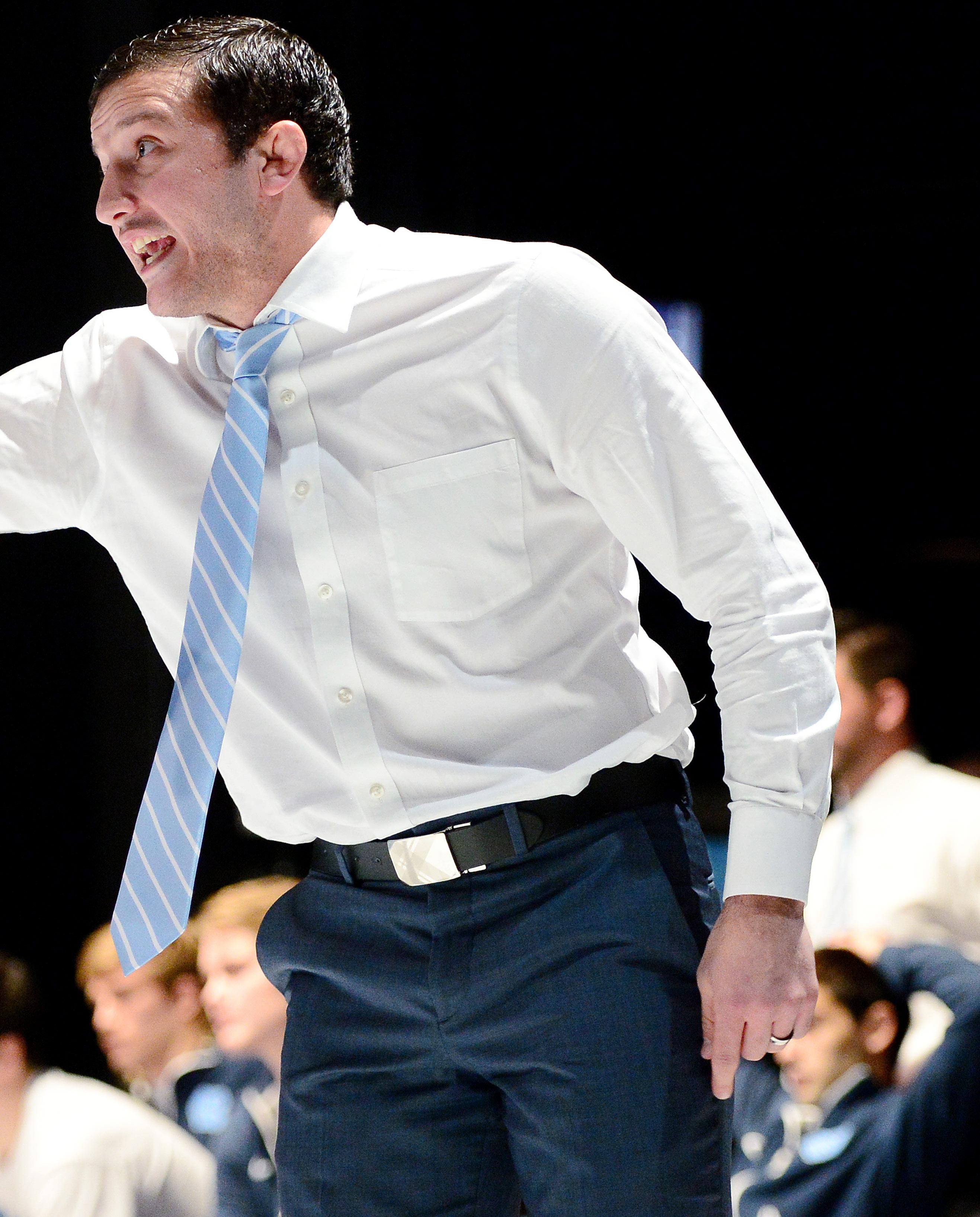
Scott comes with a significant wrestling pedigree. The Waynesburg, Pennsylvania native won three state championships and went on to wrestle for Oklahoma State. There he was a four-time All-American and won an individual national championship in 2008.
It was at Oklahoma State where Scott was shaped by legendary wrestling coach John Smith, sharing the same last name and similar status as our beloved Dean.
“He was tough,” Scott says. “You had to have thick skin. If I’m being honest, it was a love, hate relationship. But when you get to know him afterwards, he’s a really good guy.”
After a successful career at Oklahoma State, Scott set his sights on the 2012 London Olympics. Four years after his national championship, Scott qualified as Team USA’s 60kg wrestler.
In Colorado Springs, Scott was introduced to USA Wrestling head coach Zeke Jones and assistant coach Bill Zadick.
Zadick says Scott was always a lethal wrestler, known for his powerful double leg takedown. He was a smart wrestler, dependent on technique and critical thinking over exhausting the opponent.
“Coleman just wrestled really intensely and really sharply,” Zadick says. “We had the World Cup earlier in that year, and he went undefeated. He became very laser focused. He wasn’t going to accept anything less than what he wanted.”
As Scott arrived on the floor of the bronze medal match in London, his laser focus was directed on Kenichi Yumoto of Japan. It was a little over three hours after Scott barely lost to the eventual gold medalist, Toghrul Asgarov of Azerbaijan. Two or three more seconds on the clock and Scott could’ve won.
Physically and emotionally, Scott was drained.
Assistant coach Zadick stood beside the mat, looking at Scott as he got into the starting position to wrestle. It was man-to-man, will against will.
When Scott lost the first round, Zadick stayed calm, telling Scott to focus. Focus.
Zadick’s façade broke once Scott pinned Yumoto to the mat in period three and won the bronze medal. Zadick and the rest of the coaching staff quickly embraced a panting Scott. Years of preparations paid off.
Scott, however, isn’t really sure where the bronze medal is today. Maybe it’s in the closet. The last time he brought it out was probably before Christmas when someone came over for dinner and wanted to take a look. His kids have only seen the medal once or twice.
“It doesn’t mean anything,” Scott says. “I remember seeing family members after the match. I was doing it for them.”
Years of accomplishments barely decorate the walls of his office in Carmichael. A few certificates are hung, but photographs of his family dominate.
Humility. That’s a characteristic Coleman Scott has in common with the six Hall of Fame coaches at UNC.
“He’s a quality human being,” Zadick says, now head coach of USA Wrestling. “I respect his philosophy and his competitive outlook and his information at large.”
After the 2012 London Olympics, it was only natural that Scott transitioned into coaching by serving a brief stint at Oklahoma State before coming to Carolina. When Scott was hired by UNC, he was still vying for a spot on the 2016 Olympic team.
“Was it the best move for me competitively?” Scott says. “No. But you don’t pass up opportunities to be head coach at a university like Carolina.”
Scott remembers at the first head coaches meeting he attended, fencing head coach Ron Miller was being recognized for 50 years of service. Miller’s coaching tenure was nearly double Scott’s age.
He also was star-struck by Carolina’s greatest. Scott grew up playing soccer and had followed

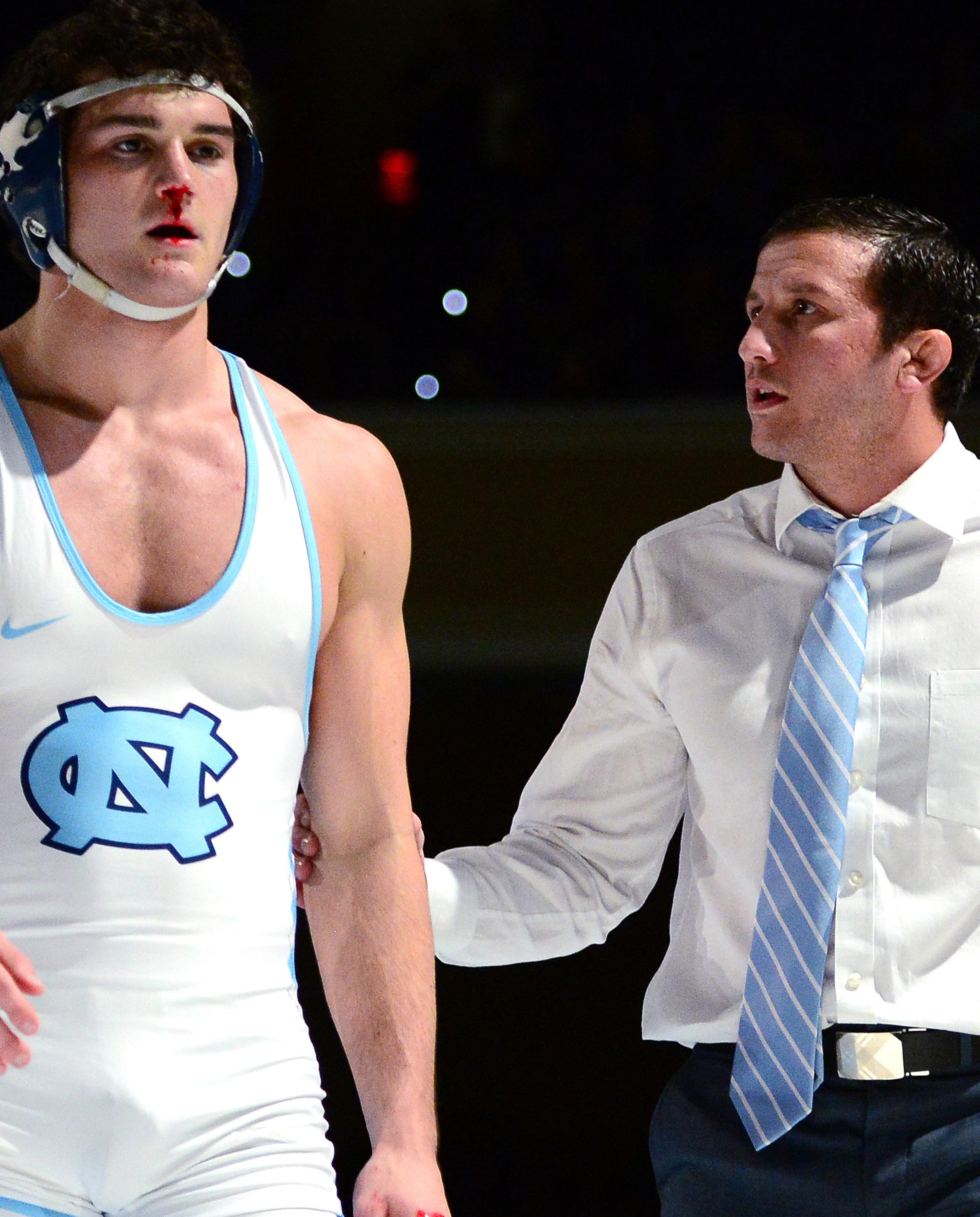
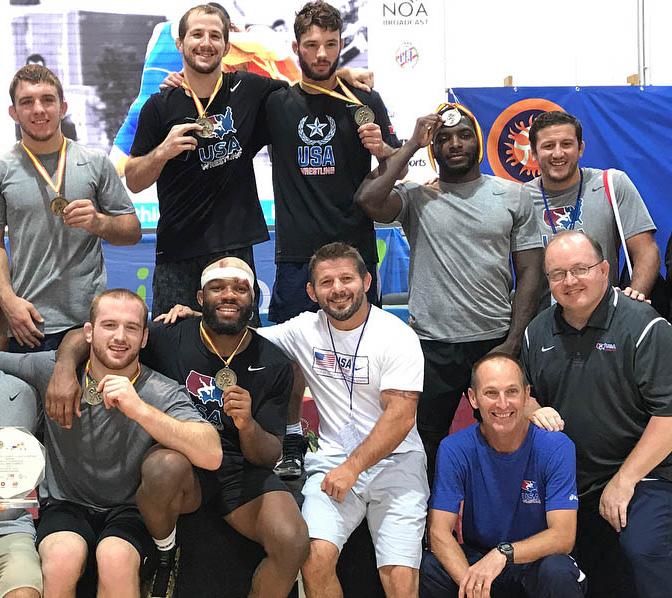
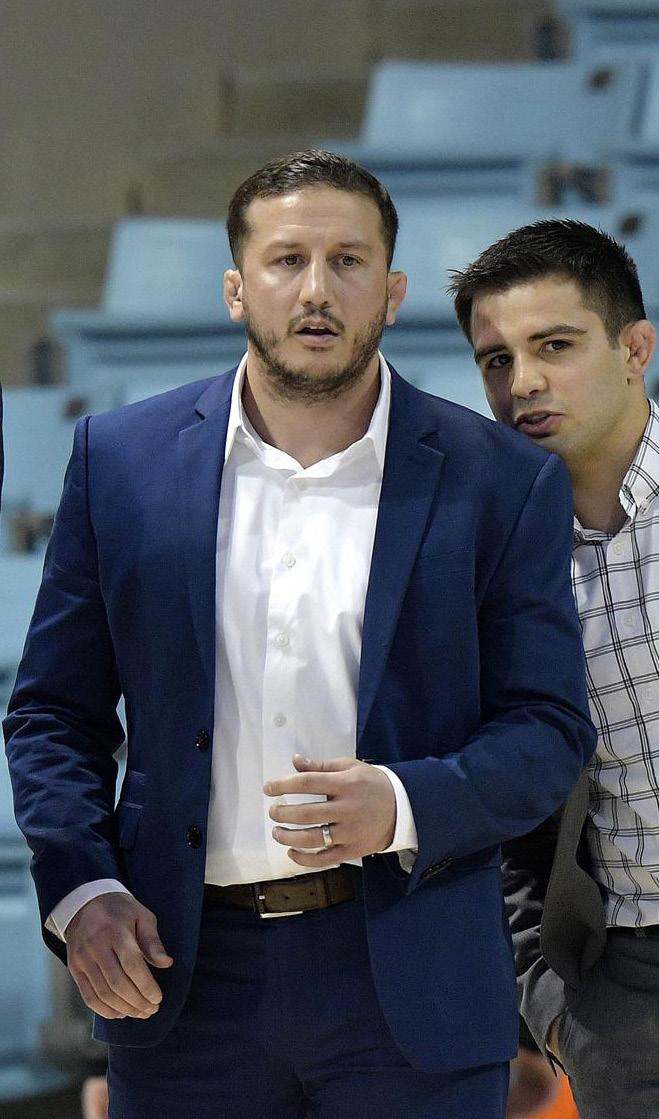
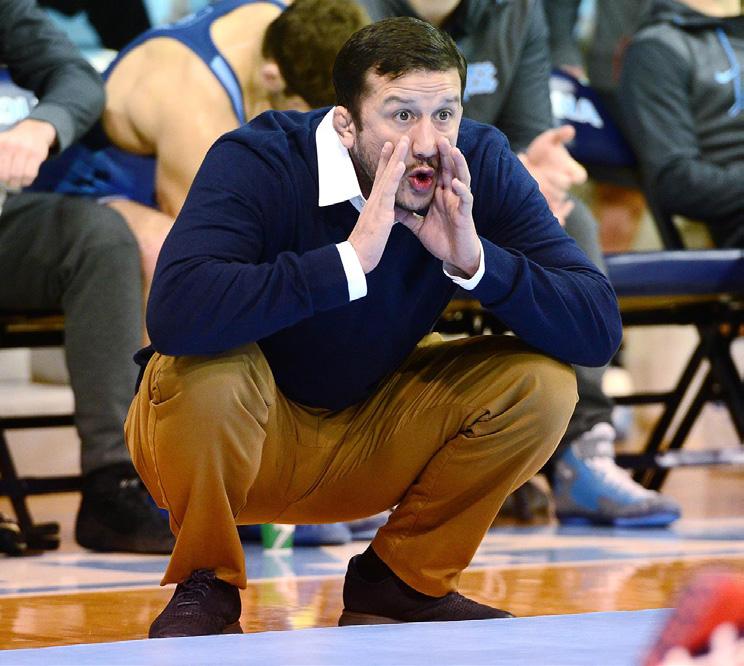
women’s head coach Anson Dorrance closely. Roy Williams was an obvious icon.
Scott found himself learning from Jenny Levy, UNC women’s lacrosse head coach and a future Hall of Famer. Levy became a valuable mentor last year when Zadick invited Scott to coach USA Wrestling women’s team.
“Coaching women is different than men,” Scott says. “I can’t get all up in their face like I can for the guys here.”
The basics were the same: develop the athletes and do things the right way. Scott just needed to learn the best strategies for making connections with the women wrestlers and get the most out of them, something Levy knows how to do well with lacrosse.
“Like all of our Hall of Fame coaches, Coleman challenges himself even more than he challenges others,” athletic director Bubba Cunningham says. “Coleman was coached and trained by some of the best teachers in the world and through that experience, he learned a lot about what it takes to be a successful coach.”
In his fourth year as head coach at UNC, Scott has led the Tar Heels to a top-15 national ranking, something that hasn’t been achieved since the ‘90s.
His athletes will say it’s because he fosters a family environment, through both incorporating his own family with the team and also through placing the same level of emphasis on each wrestler, starter and nonstarter.
Zadick will say it’s because Scott’s a good person. He has strong morals and is a positive role model for all the athletes he trains.
Cunningham will say it’s because he is a rising star in the profession; that he’s committed to taking Carolina’s wrestling program to unprecedented heights.
“I think Coleman has learned really well,” Zadick says. “Taking the best of what he can draw from all his past coaches into what he already does extremely well, and then being innovative with it.”
Redshirt sophomore Josh McClure says one of Scott’s greatest strengths is always being a student of the sport. After helping coach USA Wrestling, Scott came back to UNC ready to implement some things he learned and adapting it to their program.
Another signature of Scott: energy on the floor. When any wrestler wearing Carolina blue steps on the mat, Scott is ready to have their back. He’s famous for his foot stomping and letting the referees know when a call was questionable.
“Coleman will fight for anything,” McClure says. “He wants to win so bad. I don’t know if I’ve ever met anybody who is as competitive as him.”
Despite intensely wanting to win, McClure says Scott won’t accept anything other than the right way. There’s no cheating to win, only winning through strong will.
“He’s big on doing things the right way,” McClure says. “Like doing things in the community, or cutting weight. If you’re going to do it, do it the right way.”
Scott’s strong moral compass and young age confirmed to redshirt sophomore A.J. Rechenmacher that UNC was the right choice for him. Rechenmacher saw the strong sense of family within the wrestling staff and athletes, something he was looking for in college.
“I think where Coleman is different and has set himself apart is how he’s still young and very relevant, but he has a level of maturity that makes him the best of both worlds,” Rechemacher says. “It’s as if he has 40 years of coaching crammed into his few years of experience.”
The differences between Scott and some of UNC’s most successful coaches are few, the biggest being time. However some of the core values found in Dorrance, Levy, Williams, Brown, Fox, Hatchel and Sheldon are reflected in Scott.
The best coaches have a unique ability to understand each athlete so personally that they know how to squeeze the best out of them, Zadick says. He sees that quality in Scott.
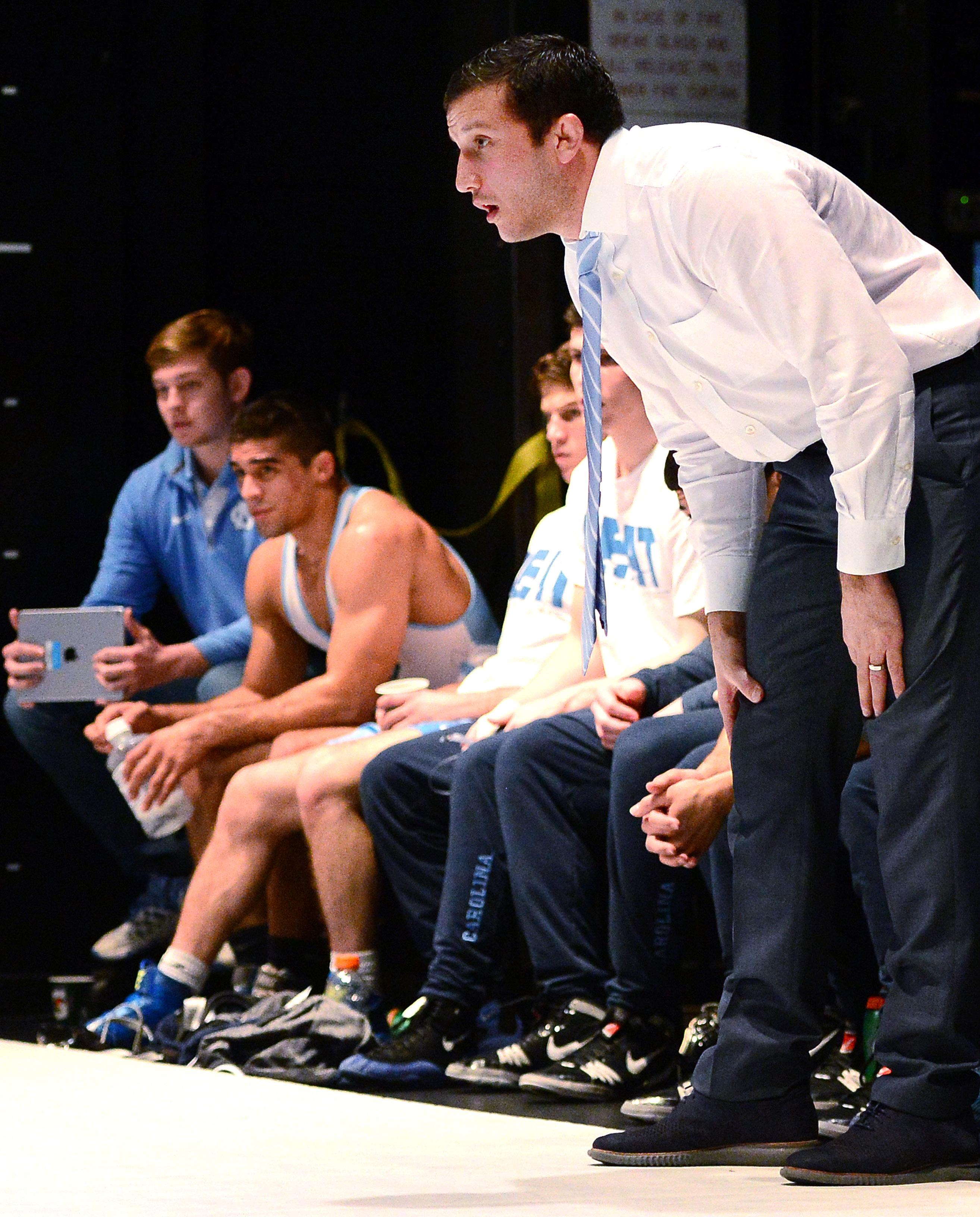
II had just finished my freshman season at North Carolina
when Roy Williams was announced as the new basketball
coach. My reaction was immediate: I was petrified.
What most people didn’t know about my recruitment was that Coach Williams was the last coach I talked to before I made my decision. At that time, he was the head coach at Kansas. Because my dad played for Coach Knight at Indiana, some schools had assumed I would automatically attend Indiana. But word was starting to get out that since Coach Knight had left IU, I was open to other schools. Coach Williams called me and said Kansas had been watching me and they would like to recruit me. It was late in the recruiting process, and I told him I felt that would be unfair to the other schools that had been recruiting me for so long. When he was hired at Carolina, that was all I could think about. I was convinced he wasn’t going to play me and would be mad that I hadn’t been interested in Kansas. The truth is that he probably doesn’t even remember that phone conversation. In reality, maybe I was worried about two things: that phone call and the running. I wasn’t worried about his coaching style. I knew I could play for any coach. But I was so nervous about the amount
of running he was going to make us do, because I knew I couldn’t keep up. Now I can’t imagine my life without having played for Coach Williams. When I was a player, I wasn’t sure I wanted to be a coach. It’s been a tremendous opportunity to start from the ground up with Coach Williams, because it’s enabled me to see every “ “Coach Williams truly loves Carolina Basketball and the University of North Carolina. He protects it like it’s one of his kids. aspect of the program. Most players—me included—don’t realize everything that the coaches do. Since I’ve been on staff at Carolina, I’ve seen another side of it, from the academic details to making the practice plan to coordinating travel for players at Christmas break. Making the And it’s been a great opportunity for me to be part of his staff. When you’re around brilliant people, it entire program work is about so much more than just playing a certain defense or running a certain play. It’s also been incredible to watch a Hall brings out the best in you. And I’ve been able to work with one of the greatest coaches in the history of of Fame coach work. As a player, what pushed me so hard was his attention to detail. He saw absolutely everything that happened on the court. It didn’t matter the game.” if he was talking to the trainer about another player and facing away from the court, you could miss a box-out and he would know it immediately. As a member of the staff, I’ve seen that the attention to detail goes beyond just what happens on the court in games. I never realized how much he loves practice. He loves the drills, he loves working on time and score situations, he loves every single part of it. And if we’re not on the court for a game or practice, he’s trying to figure out how he can get on a plane to go recruit a kid. Coach Williams truly loves Carolina Basketball and the University of North Carolina. He protects it like it’s one of his kids. And it’s been a great opportunity for me to be part of his staff. When you’re around brilliant people, it brings out the best in you. And I’ve been able to work with one of the greatest coaches in the history of the game.
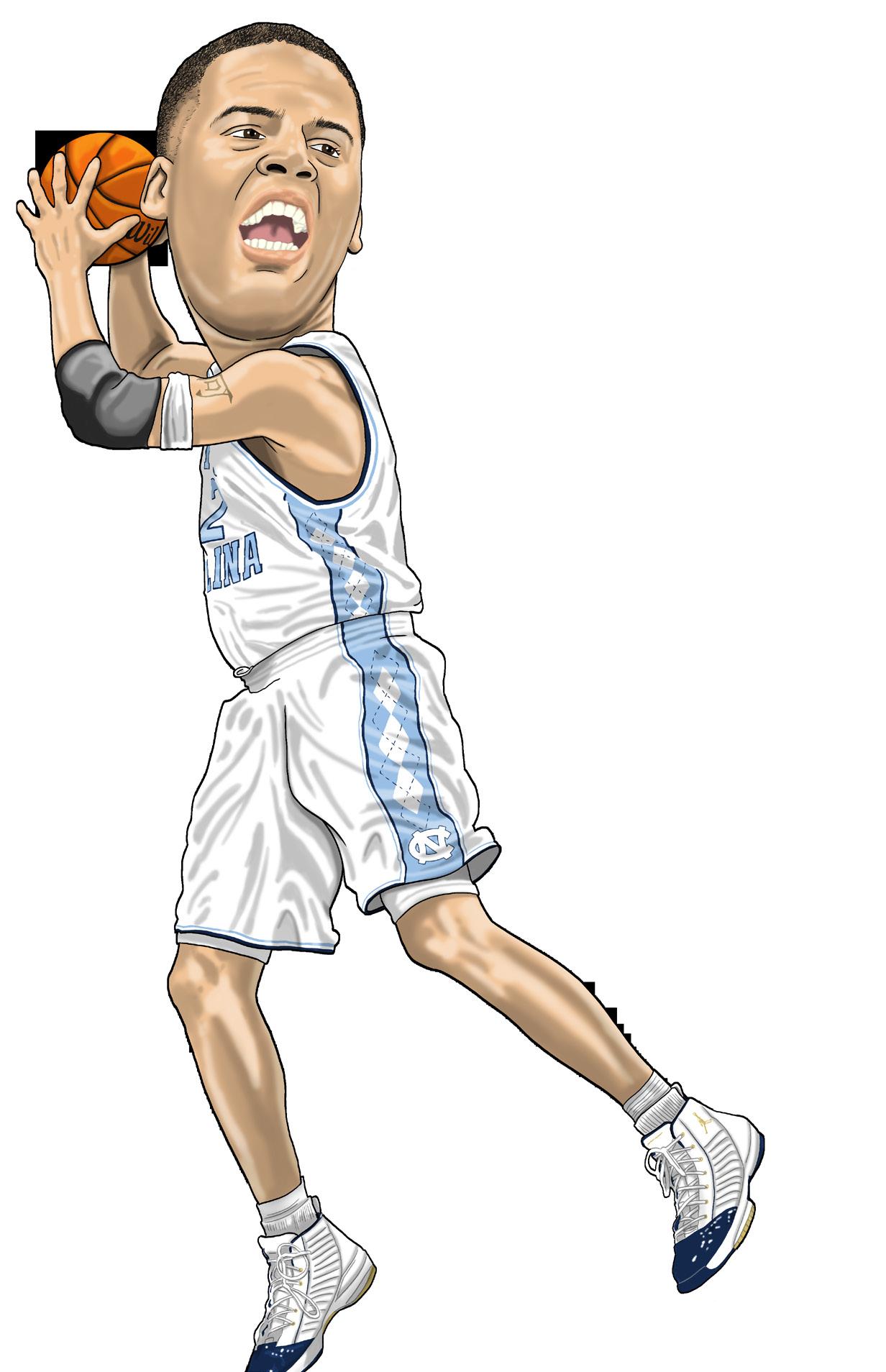

SEAN MAY
Assistant Coach, Men’s Basketball Illustration by Jason McCorkle
